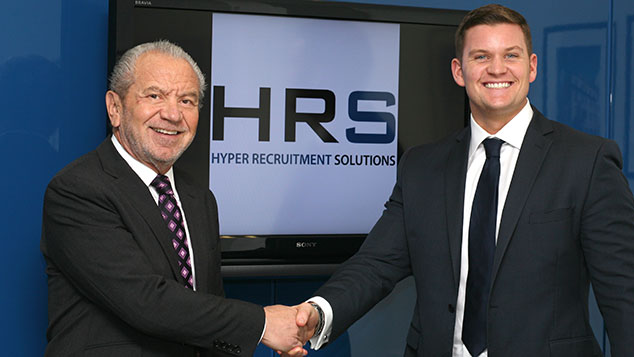
I recently had the privilege of attending an event at the Royal Society of Chemistry to commemorate the fifth anniversary of the founding of Hyper Recruitment Solutions (HRS) by winner of The Apprentice TV show, Ricky Martin.
Martin received a £250,000 investment and mentoring from Alan Sugar, which helped him set up HRS and grow it into a successful business. HRS focuses on the life sciences industry, recruiting people for senior and executive roles in a variety of areas, ranging from clinical research to regulatory affairs.
After the event, I managed to talk to Martin about how Brexit is affecting his firm.
In terms of the immediate effect on his business, Martin says that in the run up to the referendum and its immediate aftermath there was a noticeable downturn in demand from large blue-chip American drug and biotechnology companies. Many instituted a hiring freeze “due to uncertainty as to whether they would keep their factories in the UK”. As a result, they “cancelled slots at conferences and trade shows”. But recently thing have started to change; there has even been a surge in recruitment “as firms are eager to hire EU workers before they are barred from bringing them the UK”.
Martin hasn’t heard of many EU workers in the pharmaceutical sector moving back to the continent, though he points out that the jobs that he tends to recruit for are highly paid. From his interaction with other recruitment firms and his knowledge of local areas, Martin thinks that certain sectors, most notably industry, have definitely seen EU workers move back to the continent. For example, a large number of Polish workers employed in Southampton have moved back to Poland, because the weaker pound has reduced the value of their wages.
Even in the pharmaceutical sector, people are less enthusiastic about moving to the UK. He has seen several cases of companies offering jobs to people living in the EU, only for them to change their mind and turn them down. This is bad news for the UK science sector as a whole because there is currently a shortage of skilled labour. From discussion with his contacts in other industries he gets the impression that lower-skilled workers “are even more reluctant to consider taking up the offer of a job in Britain”.
Most worrying of all, he has seen evidence of firms starting to leave the UK. Indeed, he’s “had a couple of pan-European firms saying that they will move back to the continent”. In one case “a firm moved their entire UK operations to Ireland making a load of workers redundant”. While many of them will be picked up by smaller British drug companies and startups, it does mean that “there will be fewer jobs to recruit for”. It goes without saying that this is bad for the UK economy, both in terms of economic growth and government tax revenue.
When it comes to what Martin would like to see in the future, he thinks that it’s important for recruitment industry “that the government allows a reasonable degree of movement of works between the EU and UK”. Indeed, “the ability of people to move between countries is important for the economy as a whole” and he warns that “any major restrictions would be tragic, both for recruitment companies and science firms in the UK”. He also thinks that it is “very unlikely” that there will be any move to loosen restrictions on the immigration of non-EU workers to the UK.
Martin is also frustrated by the lack of government engagement, saying that “if I’m honest, the government could do a lot more to consult with industry”. As the chair of the Life Sciences Committee of the Recruitment & Employment Confederation, he has seen how the REC has tried to raise this with the various ministers responsible for science, “only to be batted away”. He bluntly puts this lack of consultation down to the fact that “they haven’t got a clue” about what’s going to happen. However, he accepts that “it’s a difficult topic and there’s no guarantee that anyone else could do any better”. Overall, “there’s a lot of uncertainty”.